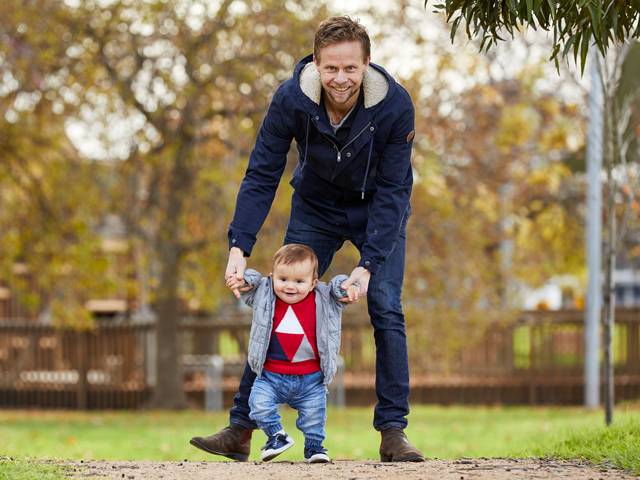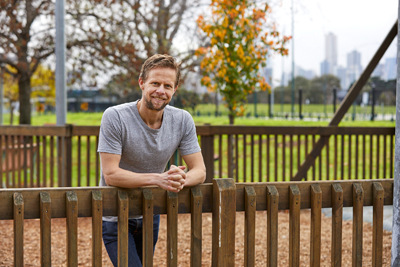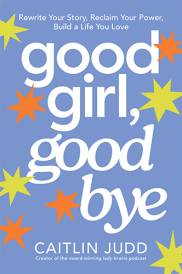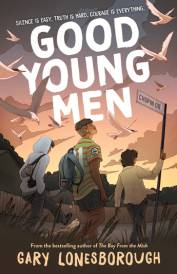Scott Davison TheDadTrain Interview

TheDadTrain.com
TheDadTrain.com was founded by Melbourne based dad Scott Davison. After becoming a father, he discovered that most of the parenting websites were targeted at mums. So he decided to start something that would provide information and support for modern dads. The Dad Train uses a research-based approach to offer information, ideas and strategies on self-improvement, relationships and parenting. He also shares insights and experiences from his own parenting journey.
Interview with Scott Davison, Founder of TheDadTrain.com
Question: Can you tell us about TheDadTrain.com?
Scott Davison: The Dad Train is a place for proactive Dads who want to be their best. We share ideas on self-improvement, relationships and parenting - from a Dad's perspective.
Question: What originally inspired you to start TheDadTrain.com?
Scott Davison: When I first became a Dad I was both excited and scared. Like many new Dads, I felt unprepared. I wanted to arm myself with knowledge, so I went looking for it online. Whilst I found lots of information available, most of it was written by mums for mums. There was nothing that spoke to me as a modern dad.
Question: What family resources were you looking for, online?
Scott Davison: I wanted to hear stories from other Dads about the challenges they had faced. I wanted to know how they managed to balance their careers, relationships and parenting. I also wanted to get ideas on how to keep fit as a dad, how to have the right mindset, how to look after myself so that I could look after my family. And I wanted to know that other dads were going through the same thing as me.
Question: Can you tell us about your family?
Scott Davison: Well, I guess we are a typically untypical modern family. At home, there's me, my partner Agus, our 18-month-old son Luca plus our two chooks, two fish and a cat.
But we're also lucky to have a diverse extended family spread across two countries (Australia and Argentina) which is made up of grandparents, great grandparents, aunties, uncles and cousins. We keep in touch with them via Skype and try to get over there to visit as often as possible.
And we also do some respite foster care, so we have a 10-year-old foster child who comes to stay with us sometimes.
Question: You've researched relationships for TheDadTrain.com; what did you find most challenging about the changes in your relationship, with your partner, once you had children?
Scott Davison: Particularly in the first six months following the arrival of the baby, my partner was completely exhausted. All her time and energy was consumed with the baby, she had nothing left in the tank to dedicate to our relationship.
And it's completely understandable, her priority needs to be the baby. But it is a big change in the dynamics of the relationship. When two becomes three, you learn what interdependence is really about.
Prior to the arrival of kids, you can just relax and let things happen naturally. It's more of a 50/50 type deal. But after the baby arrived, I found I needed to be far more proactive in looking after our relationship.
This is when I started doing research for ideas and strategies that could help. It's one of the reasons I cover relationship topics on The Dad Train, because I think there's a real opportunity for Dad's to step up and take the lead role in nurturing the relationship once the kids arrive. It's so important. We know that one of the best things you can do for your kids is to have a healthy relationship with their mother. But we also know that almost half of all relationships experience problems following the arrival of a baby. So if ever there was a time to step up, this is it.
 Question: Can you tell us how we can complain the right way?
Question: Can you tell us how we can complain the right way?
Scott Davison: Well, it's easier said than done of course, but the strategy I recommend is the one proposed by Dr John Gottman.
It's sometimes referred to as the X,Y, Z method, because you state X (how you feel), Y (what specifically caused you to feel that way) and Z (what can be done to resolve it).
The key is to make sure it's a complaint about a specific incident or behaviour, not a general criticism about the other person's character.
E.g. "I felt unappreciated (the emotion) because you didn't say thanks for dinner last night (the specific incident). I'd like you to notice and acknowledge when I make an effort to cook dinner (the solution).
Is much better than: "You never say thanks for dinner (general statement) because you are selfish (criticism)".
Question: How does this approach to complaining change or avoid a disagreement?
Scott Davison: By sticking to this approach, you avoid slipping into criticism and you help provide a solution. It doesn't avoid disagreements, but it helps make the discussion less personal and more productive.
Question: What's the most important advice you've been given regarding disagreements with partners?
Scott Davison: "Sometimes in life, you need to yield in order to win." (Aikido Principle)
Question: How can we all become better listeners, especially in our own relationship?
Scott Davison: Again, when it comes to relationships, I refer to Dr Gotman's advice. Follow these 8 steps.
1. Take turns talking and listening.
2. Show genuine interest
3. Don't give unsolicited advice (understanding always proceeds advice)
4. Communicate your understanding (repeat back what you've understood in your own words)
5. Always take your partner's side (especially if mother in laws are involved)
6. Express a 'we against others' attitude (show them you are on their team)
7. Show affection
8. Validate emotions
Number three is particularly relevant to men as we often want to jump straight into problem-solving mode. But it's the wrong approach. You need to listen and empathise by trying to understand exactly what your partner is feeling. Put yourself in their shoes. Don't try to solve their problem.
Question: How does a phone addiction impact your relationship with your partner and children?
Scott Davison: It's pretty simple really. If you are looking at your phone, you are not present. And they deserve better than that.
Interview by Brooke Hunter
MORE





